
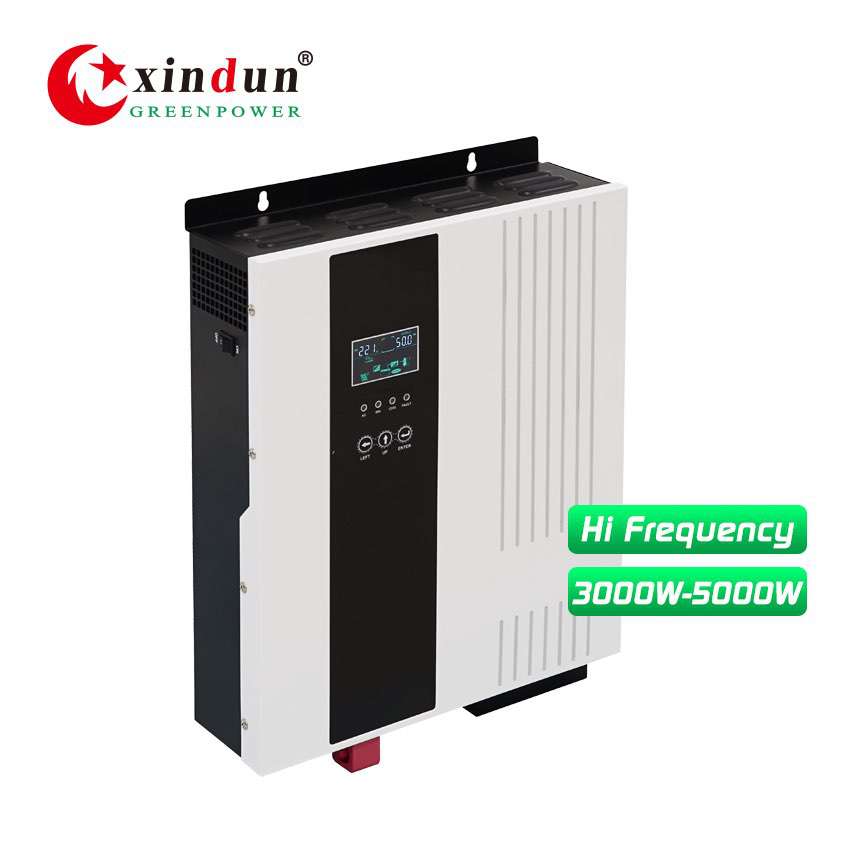
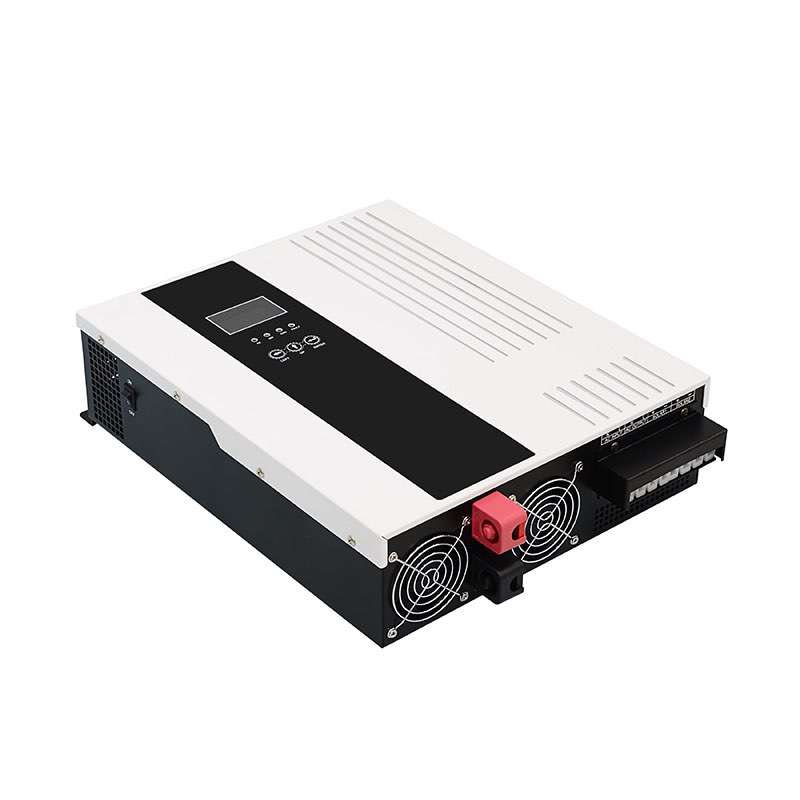
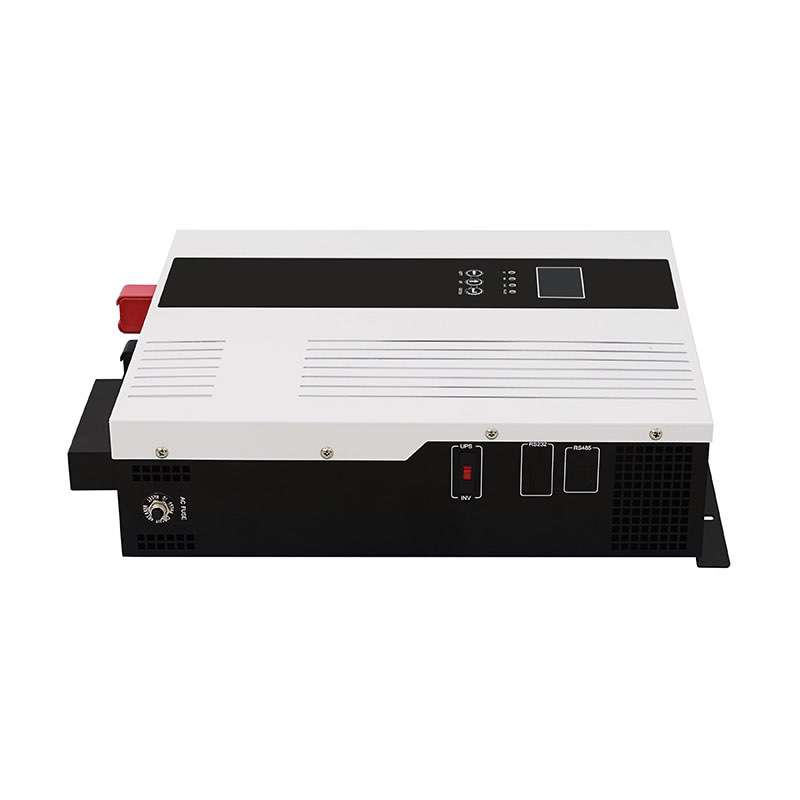
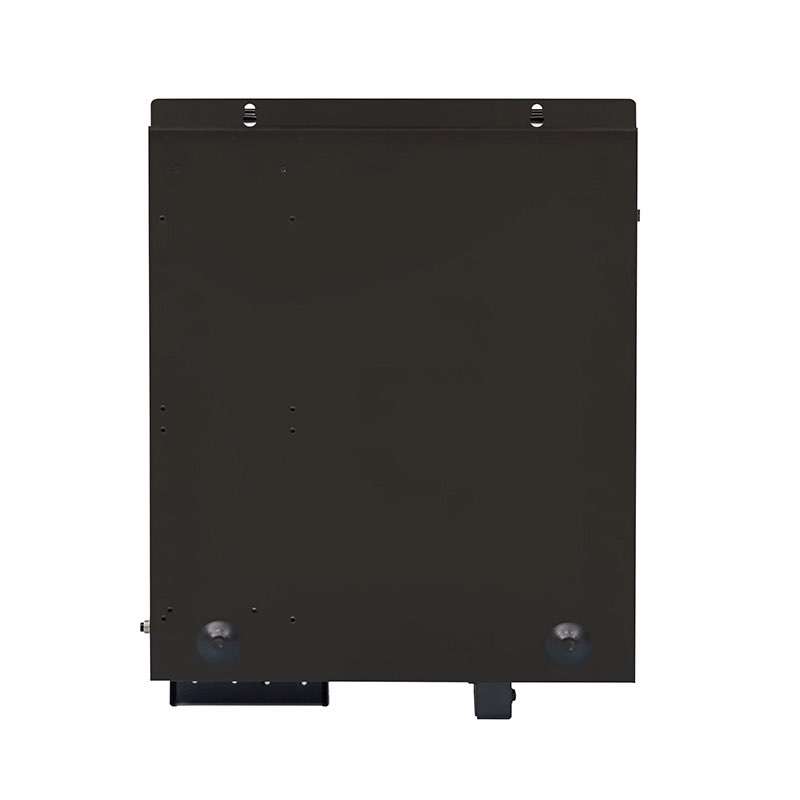
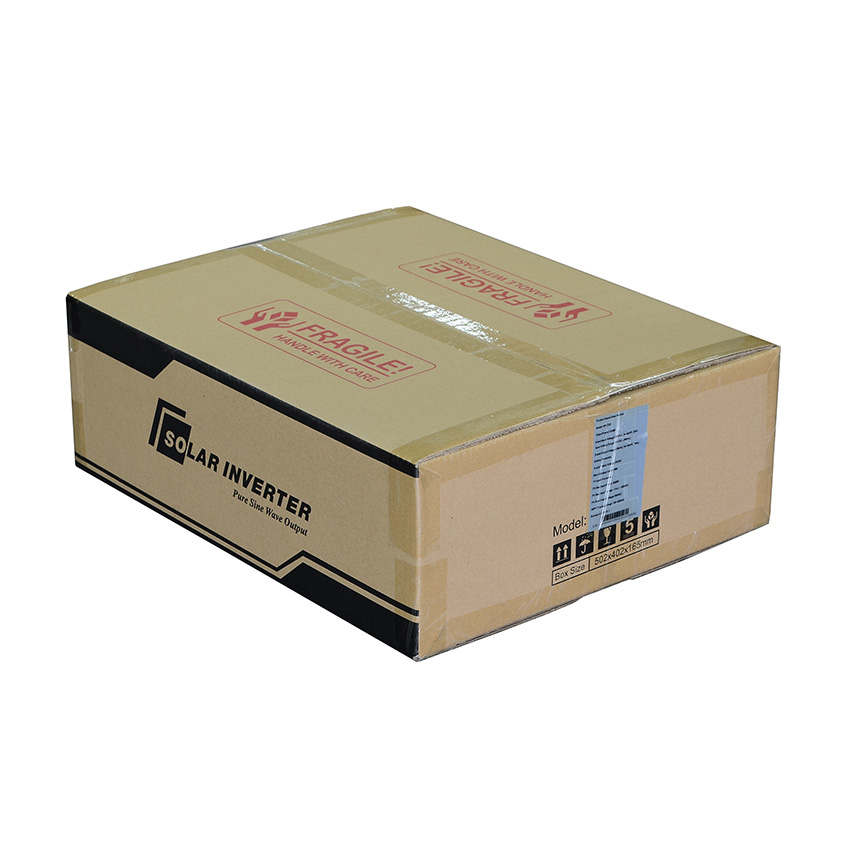
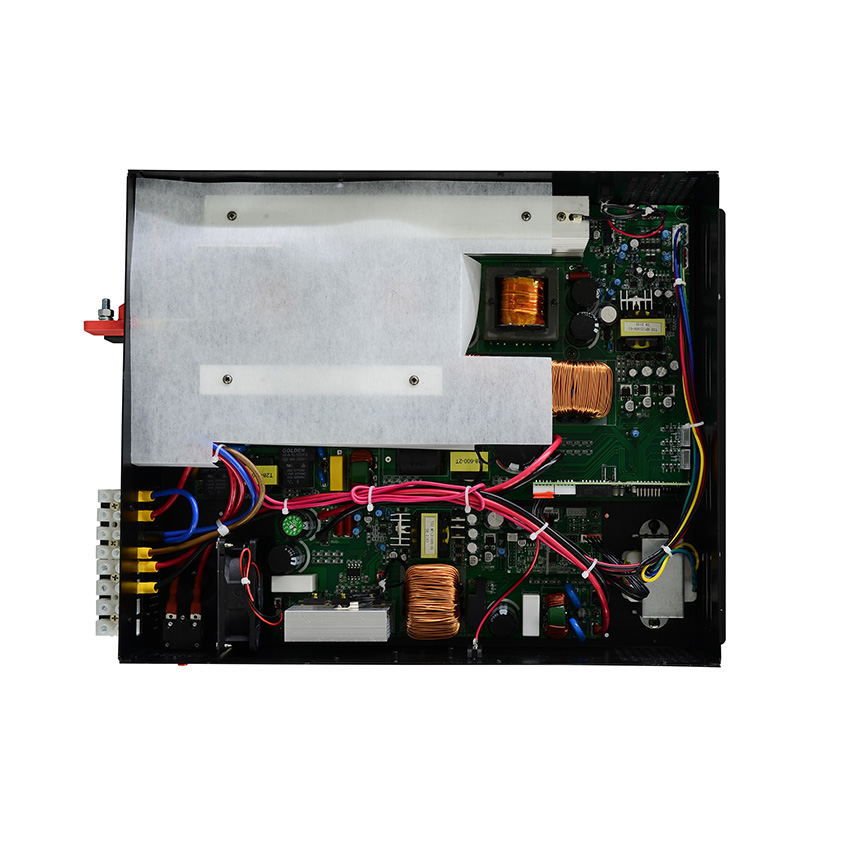
3200W/5000W 24VDC to 220V/230V/240VAC | Pure Sine Wave Inverter | Power Inverter High Frequency Design
Product
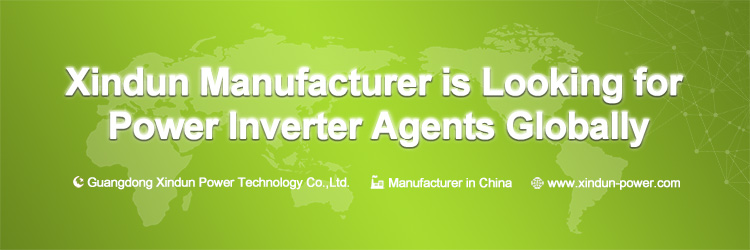
Xindun provides dc to ac power inverter customized services for thousands of agents.
We are a China manufacturer supplies first-hand inverters and help agents develop the local market.
■ DC to AC Inverter Feature
1 High frequency design, high power density, small size, high efficiency, low no-load loss.
2 DC to AC power inverter pure sine wave output, any types of loads adaptable.
■ DC to AC Inverter Specification
Note: All specifications are subject to charge without prior notice.
Specification
Model: HP
32224
50248
Rated Power
3200W
5000W
Peak Power(20ms)
9600VA
15KVA
Battery Voltage
24VDC
48VDC
Product Size(L*W*Hmm)
476x350x118
Package Size(L*W*Hmm)
502x402x165
N.W(Kg)
11.5
11.8
G.W(Kg)
12.5
12.8
Installation Method
Wall-Mounted
Input
DC Input Voltage Range
21VDC-30VDC
42VDC-60VDC
Rated AC input voltage
220VAC / 230VAC / 240VAC
AC Input Voltage Range
170VAC~280VAC (UPS mode)/ 120VAC~280VAC(INV mode)
AC Input Frequency Range
45Hz~55Hz(50Hz),55Hz~65Hz(60Hz)
Output
Output efficiency(Battery/PV Mode)
94%(Peak value)
Output Voltage(Battery/PV Mode)
220VAC±2% / 230VAC±2% / 240VAC±2%
Output Frequency(Battery/PV Mode)
50Hz±0.5 or 60Hz±0.5
Output Wave(Battery/PV Mode)
Pure Sine Wave
Efficiency(AC Mode)
>99%
Output Voltage(AC Mode)
Follow input
Output Frequency(AC Mode)
Follow input
Output waveform distortion
Battery/PV Mode)
≤3%(Linear load)
No load loss(Battery Mode)
≤1% rated power
No load loss(AC Mode)
≤1% rated power(charger does not work in AC mode)
Battery
Battery
Type
VRLA Battery
Charge Voltage :13.8V; Float Voltage:13.7V(Single battery voltage)
Customize battery
Charging and discharging parameters of different types of batteries can be customized according to user requirements
(charging and discharging parameters of different types of batteries can be set through the operation panel)
Maximum charging current (Mains or PV or mains + PV)(Built-in MPPT controller model)
60A
50A
Maximum charging current
(Built-in PWM controller model)
Mains60A+
PWM controller charging current
Mains50A+
PWM controller charging current
Charging method
Three-stage (constant current, constant voltage, floating charge)
Protection
Battery low voltage alarm
Battery undervoltage protection value+0.5V(Single battery voltage)
Battery low voltage protection
Factory default: 10.5V(Single battery voltage)
Battery over voltage alarm
Constant charge voltage+0.8V(Single battery voltage)
Battery over voltage protection
Factory default: 17V(Single battery voltage)
Battery over voltage recovery voltage
Battery overvoltage protection value-1V(Single battery voltage)
Overload power protection
Automatic protection (battery mode), circuit breaker or insurance (AC mode)
Inverter output short circuit protection
Automatic protection (battery mode), circuit breaker or insurance (AC mode)
Temperature protection
>90°C(Shut down output)
Working Mode
Mains priority/Solar priority/Battery priority(Can be set)
Transfer Time
≤4ms
Display
LCD+LED
Thermal method
Cooling fan in intelligent control
Communication(Optional)
RS485/APP(WIFI monitoring or GPRS monitoring)
Environment
Operating temperature
-10℃~40℃
Storage temperature
-15℃~60℃
Noise
≤55dB
Elevation
2000m(More than derating)
Humidity
0%~95% (No condensation)
■ DC to AC Inverter Details
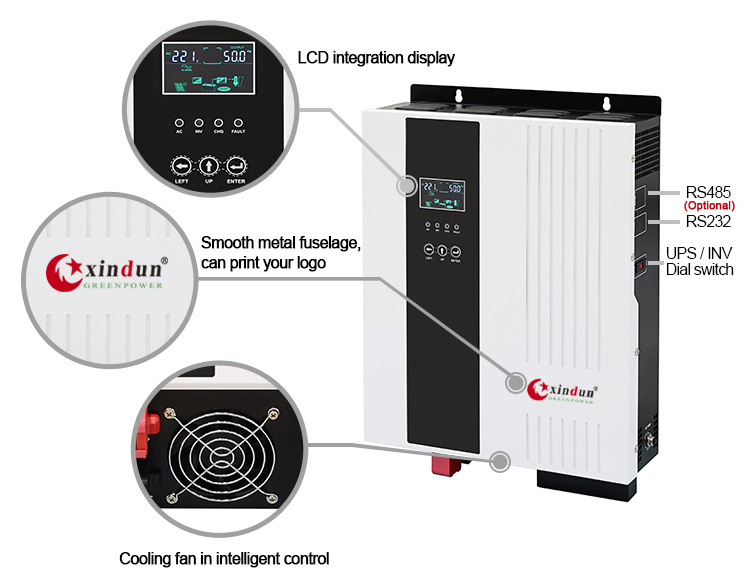
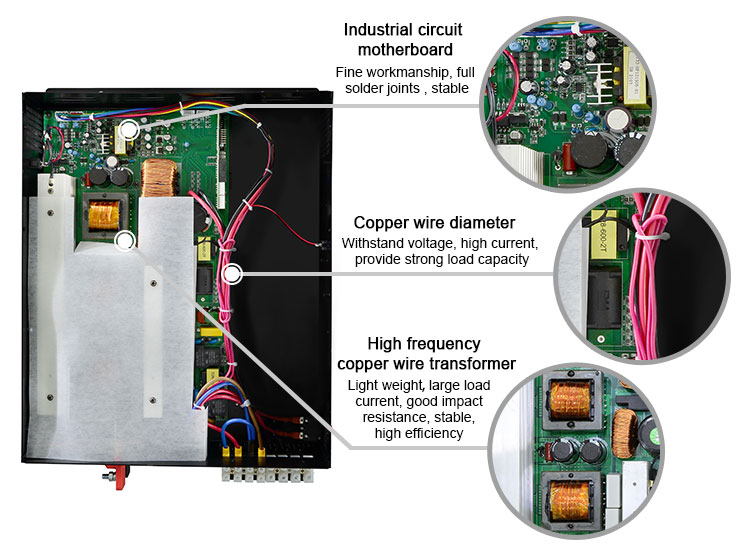
■ DC to AC Inverter Wiring Diagram
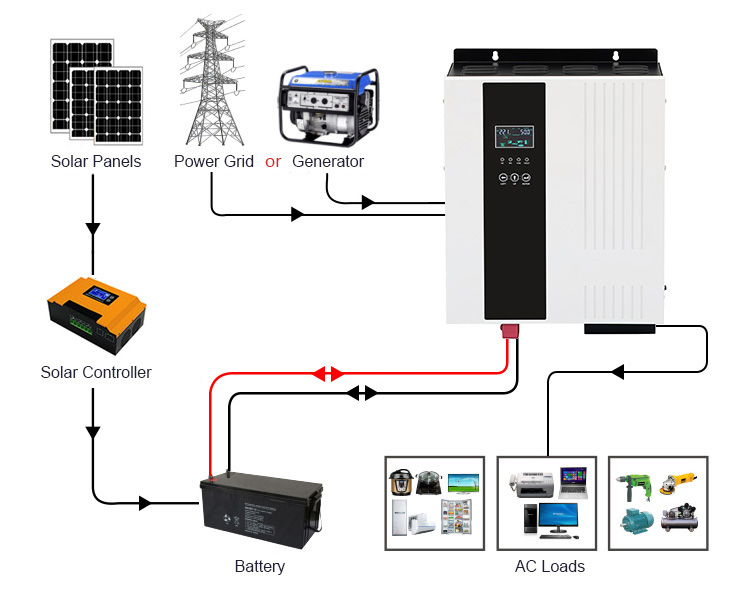
We offer 3 optional inverter working modes (transfer time≤4ms):
1) AC priority mode (d0)
A. When the mains power is normal (in line with the inverter power input voltage range), on the one hand, the mains power charges the battery (if built-in solar controller, the mains power and solar energy charge the battery at the same time); on the other hand, only the mains power supplies power to the load (the load does not consume solar and battery energy);
B. When the mains power is abnormal (the mains power is beyond the working range of the inverter or the mains power is interrupted), the inverter will switch to the battery mode, and the battery will supply power to the load (if built-in solar controller, when the solar power is greater than the load power, the load will be completely supplied by the solar energy, and the excess energy will charge the battery; when the solar energy is less than the load power, the insufficient part will be supplemented by the battery. The load is supplied by solar energy and battery together).
2) PV priority mode (d1)
A. When the solar is normal (in line with the solar input voltage range of the inverter), if the solar power is greater than the power of the load, the load is completely powered by solar, and the solar excess enengy charges the battery, when the solar power is less than the power of the load, the insufficient part is supplemented by the battery, and the solar and the battery supply power to the load together. If the battery is low volage due to the load, then the inverter will turn to the AC mode for power supply, and the solar will only charge the battery;
B. When the solar is abormal (the solar volage exceeds the working range of the inverter or the solar is interrupted, the inverter will directly switch to the AC mode for power supply, and the mains power will charge the battery.
3) Battery priority mode (d2)
A. When the inverter has no low-voltage battery alarm, even if the mains power input is normal, the inverter will switch to the battery mode, and the battery will supply power to the load. When the solar power is greater than the load power, the solar power will supply power to the load completely. and the excess enengy will charge the battery. When the solar power is less than the load power, the insufficient part will be supplemented by the battery, and the solar and battery will supply power to the load together;
B. When the battery is low voltage (i.e. the voltage of a conventional single battery is 11vdc) and the mains power input is normal, the inverter will switch to the AC mode and the mains power will supply power to the load completely, while the solar energy will charge the battery but the mains power does not charge the battery.
■ Inverter Package and Delivery
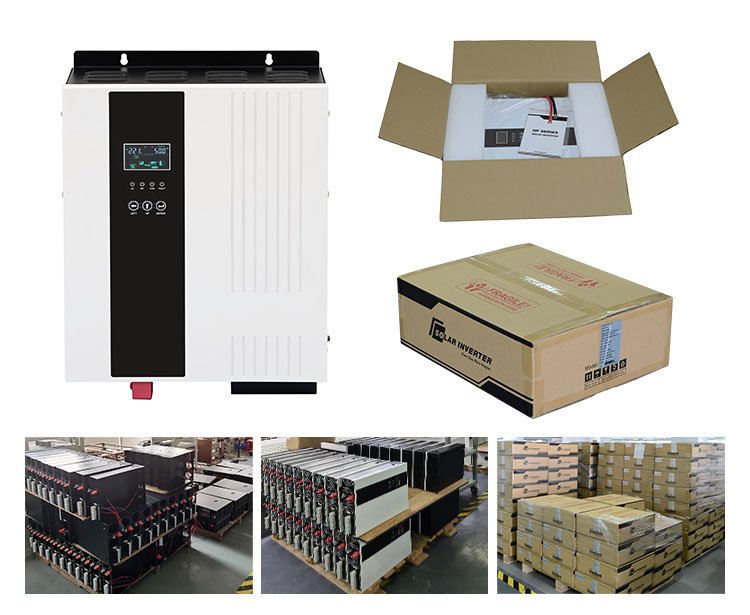
■ Why Choose Us?
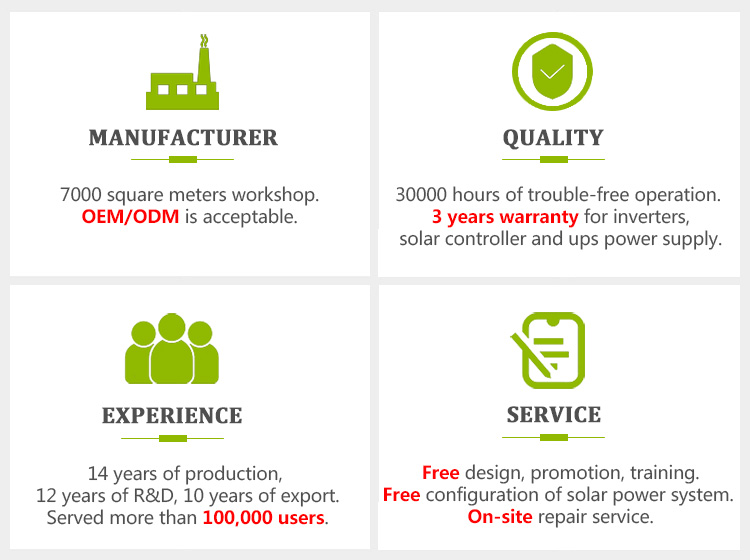
1. We are a professional manufacturer of dc to ac power inverter with over 14 years experience. Best production capability, best quality control, best service.
2. 100% QC inspection and testing before shipment.
3. CE listed, competitive price.
4. 14 years of high-level OEM experience
5. 7,000 square meters factory size (Sq.meters)
5. 200,000 pcs monthly capacity
7. Export percentage: 80%
8. Hi-tech advanced R&D team.
■ About Xindun Power
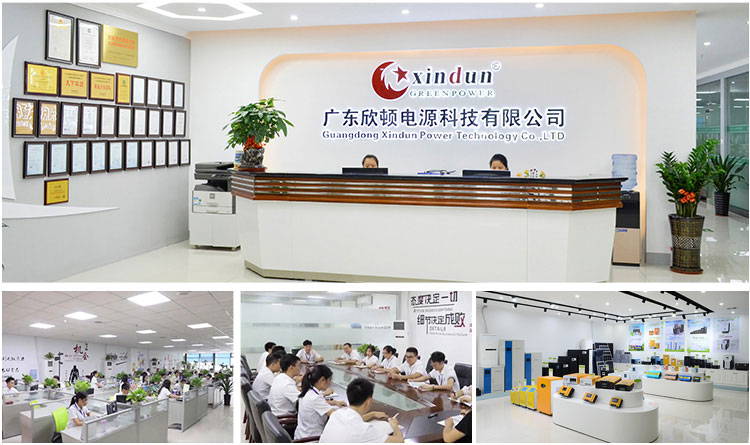
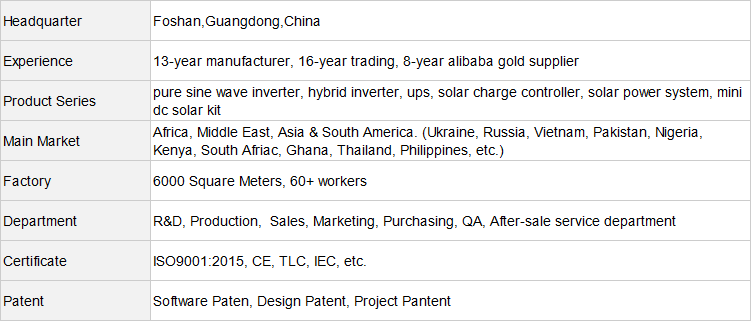
■ Inverter Factory
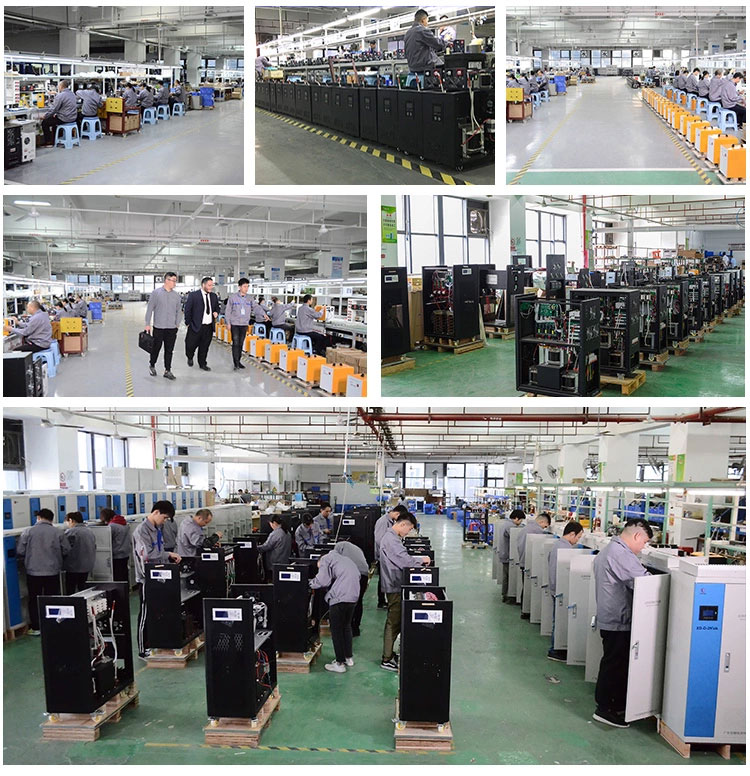
■ Qualifications and Certificates
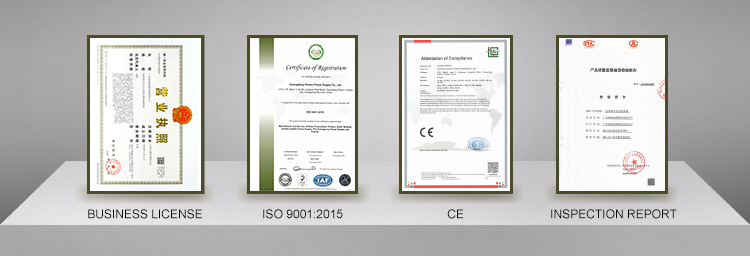
■ Global Solar Exhibitions
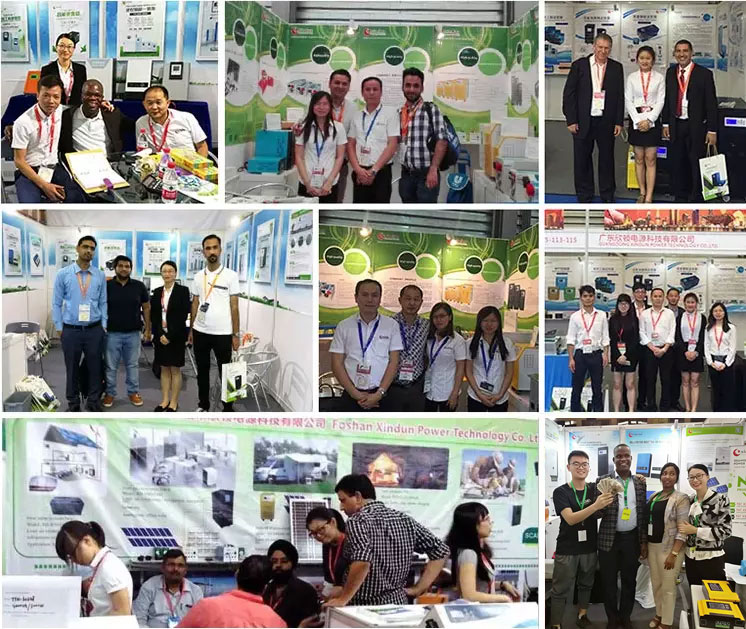
■ FAQ
Q1: Are you a factory?
A: Yes, we are the top 10 power supply manufacturers in China, with over 7000 square meters production area. We focus on inverters, solar charge controllers, solar generators and solar power system solution. We cooperate with some famous brands all over the world, can provide customized production or add your logo on products.
Q2: What is the price of dc to ac inverter?
A: Tell me your requirements, such as power, voltage, charging current, quantity, and whether there are other functional requirements. We will give you the most favorable ex factory price. DC to AC inverter factory direct sales, no middlemen earn price difference.
Q3: What type of inverters do you produce?
A: We produce various types of inverters: pure sine wave inverters, off-grid inverters, on/off grid inverters, solar hybrid inverters, single phase inverters, 3 phase inverters, low frequency inverters, high frequency inverters, etc. Don’t know which type of inverter to choose? Contact XINDUN now!
Q4: What\'s the difference between pure sine wave inverter and modified sine wave inverter?
A: Pure sine wave output inverter is just as good as the public power grid, even better. Low repaired rate, long lifespan, without harmonic pollution, enviromental-friendly and appliances protected.
Modified sine wave output inverter has a negative impact on appliances and can\'t load inductive load, such as air contition, refrigerator and etc. Certain motor control circuits don\'t like the modified wave.
Q5: How to solve the dc to ac inverter technical problem?
A: We will provide market and product training services, 24 hours after-service consultancy just for you and to make your problem to solveeasily.